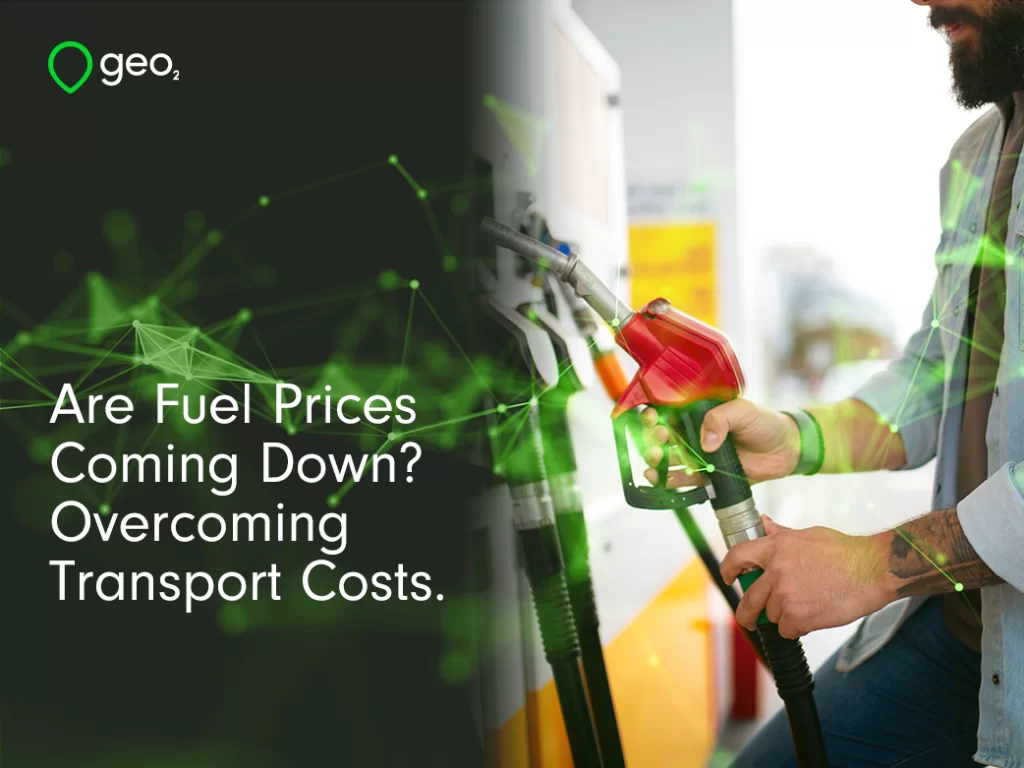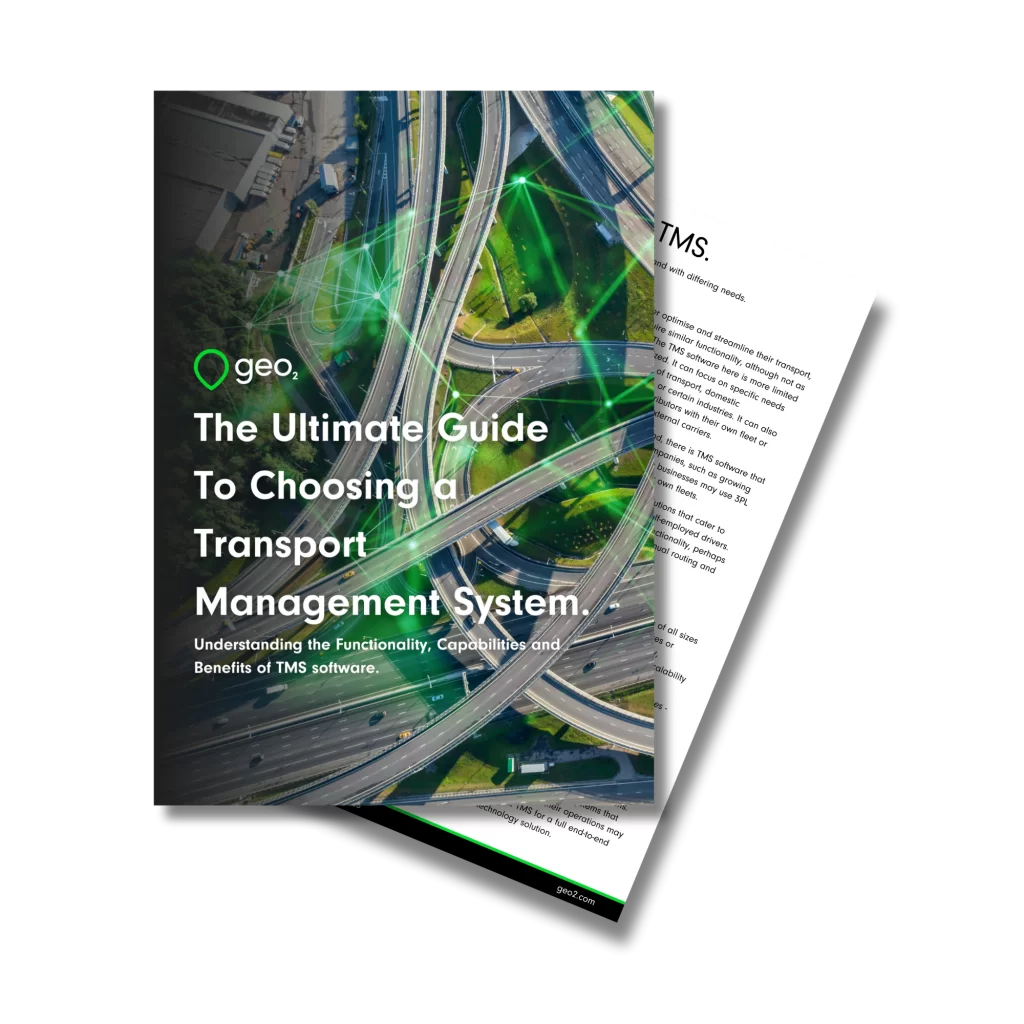
Are Fuel Prices Coming Down? Overcoming Transport Costs.
Introduction.
Fuel prices in the UK reached an all-time high in July 2022. They were more than 64% higher than at the start of 2021 and it hit the transportation industry hard.
Logistics providers and distributors were compelled to raise prices in order to protect their margins. However, consumers were already burdened by the cost of living crisis and could scarcely afford further price increases.
Although fuel prices have since come down from that peak, they are still higher[1] than they have been at any point in the last ten years.
Prices continue to be impacted by the effects of inflation. Since the transportation sector is so vital to the UK economy, it’s important for distributors and logistics providers to mitigate the effects of rising transport costs, ensuring they can remain competitive and can efficiently deliver essential goods across the country.
Need help choosing a TMS?
Download the Free Guide Now.

Table of Contents.
Factors Affecting Fuel Prices.
During the pandemic, travel restrictions caused a significant decrease in demand for fuel, meaning the price of crude oil dropped.
As restrictions and lockdowns were eased, demand picked up again. But this also coincided with Russia’s invasion of Ukraine, after which many countries stopped buying Russian oil.
The increased demand for crude oil from other producing countries caused prices to rocket higher than pre-pandemic levels, with the result that fuel prices in the UK surged during 2021 and continued to rise until they reached the July 2022 record high.
At the same time, the pound was falling against the dollar. Since crude oil is traded in US dollars, this increased retailers’ prices even more.
Oil prices started to fall again after the peak, but despite that, prices remain relatively high. It seems that the oil refineries continued to build substantial profit margins into their prices and did not pass on the price reductions to wholesalers and retailers.
Again, although that is now easing, there is always a lag in price reductions trickling down to end consumers. Also, retailers have kept their prices high, so prices weren’t reduced as quickly as they might.
Table of Contents.
The Impact of Rising Transportation Costs.
Fuel costs represent a significant proportion of a logistics company’s costs. So, price hikes are something that can seriously impact a business’s bottom line.
One of the most direct impacts is the increase in operating costs. With higher fuel prices, logistics companies have to pay more to run their fleets, which squeezes margins.
Some logistics companies have transferred the increased costs to their customers. But in such a competitive market, this isn’t always possible without risking a loss of business. In the current climate it is certainly not an easy decision to pass increased costs onto the customer.
Aside from the cost of fuel, there have been other supply chain disruptions since 2021. These stem from the continued effects of the COVID-19 pandemic, the Suez Canal blockage, rising container costs, HGV driver shortages, demand fluctuations and goods shortages. Some of these disruptions continue, and when combined with rising fuel prices, they only serve to compound the challenges faced by distributors and logistics businesses.
Smaller logistics companies and those already operating on tight margins face severe financial strain. For those that can’t adapt quickly enough, a significant decline in profits is a real threat. As is bankruptcy. Across 2021 and 2022 in the sector, hundreds of businesses entered administration, including 149 postal and courier companies, 197 warehousing and support companies and 1,314 road transport operators.
Ways of Overcoming Rising Transport Costs.
To counteract the challenges of fuel price increases, logistics companies need to reevaluate their operational strategies, innovating and adapting their approaches to ensure efficiency and cost-effectiveness.
If you are affected by rising fuel and transport costs, there are several ways you can mitigate their impact.
Firstly, you can encourage your drivers to use practices that save fuel, such as driving smoothly, turning off the engine while queuing, driving more slowly on motorways and minimising the use of air conditioning.
As a business, you can also invest in more fuel-efficient vehicles and ensure they are serviced regularly, with an emphasis on predictive maintenance.
Another operational adjustment that will improve efficiency is to optimise your routes so that you cut fuel consumption. You can help drivers to beat the traffic, which can be especially taxing on fuel use in cities or when you have to contend with making deliveries during large scale events.
The rise in fuel prices is prompting some companies to explore alternative fuels and technologies. You may like to consider how fleet electrification could reduce your costs, or perhaps look into using natural gas HGVs, which can save thousands a year.
Another option is to explore strategic partnerships with other companies, which may allow you to optimise routes and share transportation resources. For example, tying up with another transport company or distributor may enable you to benefit from backloading (also called backhauling), which reduces the number of empty runs you make and thereby maximises each of your drivers’ trips.
Will Fuel Prices Drop?
It’s hard to say for certain whether fuel prices will drop, stabilise or even rise again. At the time of writing, the RAC forecasts that petrol prices will not change and diesel prices are likely to increase.
However, fuel prices are closely tied to inflation, which is predicted to decline. The Bank of England predicts that inflation will continue to decline during 2023 and 2024, reaching its 2% target in early 2025.
Even if fuel prices do continue to fall, you will still want to limit your operational costs as much as possible. If you can adapt and innovate even when prices are falling, you will be in an excellent position if the situation deteriorates again.
In the face of rising transport costs, and aside from adopting fuel-efficient vehicles and practices, one of your best investments could be a transport management system (TMS), such as Geo2. This can help you plot optimal routes in advance and also dynamically direct your drivers away from traffic congestion that would otherwise increase your fleet fuel consumption.
Try Geo2 for free today or book your free consultation to find out how your business can overcome rising transport costs.
References:
[1] According to figures from RAC Fuel Watch, on 17th July 2023, https://www.rac.co.uk/drive/advice/fuel-watch/#how-have-petrol-and-diesel-prices-changed-over-time-in-the-uk







